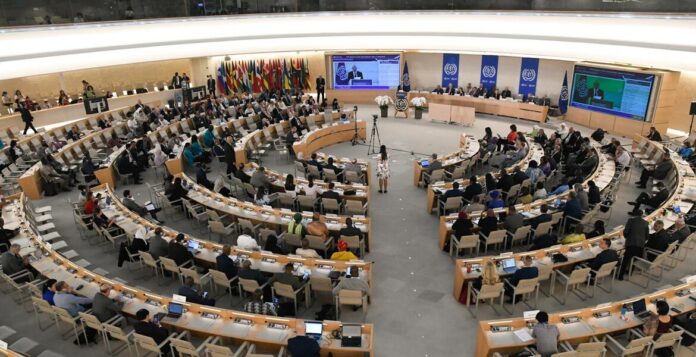Incontestably, the Republic of Moldova has taken significant steps towards integration into international structures and aligning its legislation with their rigorous standards. Last autumn, alongside the Confederation of Trade Unions of Moldova (CNSM) becoming a member of the European Trade Union Confederation (ETUC), the country received visits from influential figures and decision-makers from the International Labour Organization (ILO). These visits not only acknowledged the merits and achievements of the labor movement but also boosted its image and provided impetus for progress towards the European Union.
Recently, in a historic first for our country, the Republic of Moldova was appointed Vice-President of the 111th session of the International Labour Conference held in Geneva, Switzerland from 5th to 16th June. Corina Ajder, Secretary of State at the Ministry of Labor and Social Protection, assumed this role and presided over several plenary sessions attended by ministers, secretaries of state, directors, labor inspectors, social partners, and other officials delegated to deliberate on the report of the ILO Director-General concerning progress in the field of social justice.
The Republic of Moldova was represented at the 111th session of the International Labour Conference by three delegations, led by Igor Zubcu, President of the CNSM, Alexei Buzu, Minister of Labor and Social Protection, and Leonid Cerescu, President of the National Confederation of Employers of the Republic of Moldova.
During the conference, Igor Zubcu delivered a speech from the ILO podium, expressing gratitude to the organization for its efforts in promoting decent work principles and dignity for workers. He acknowledged the support, expertise, and technical assistance provided by the ILO to the Republic of Moldova in advancing policies that benefit workers and their families.
“Sindicates can contribute to a prosperous and equitable world of work through their involvement in the decision-making process,” stated Zubcu.
“The professional team of the ILO, led by Director-General Gilbert F. Houngbo, whom I had the great pleasure of meeting in Chișinău, along with Maria Helena Andre, Director of ILO-ACTRAV, who also visited our country, has been a trusted partner in supporting the labor movement in the Republic of Moldova to promote decent work for unionized workers. I believe that together we have achieved much, but there is still more ahead of us,” emphasized Igor Zubcu.
He also highlighted the challenges faced by Moldova, such as the war in Ukraine, energy crisis, inflation, food security, and migration. These crises affect the workforce and their families, and the focus should be on ensuring a decent future while anticipating the current and future needs of citizens. Zubcu firmly believes that achieving this is possible through collaboration with the ILO.
“I am firmly convinced that full and secure employment can be ensured through social dialogue. The training and requalification of a qualified workforce are imperative for labor market sustainability. The recommendation for quality apprenticeship programs, which is being discussed at this year’s conference, is an important instrument that will contribute to preparing skilled workers in line with current labor market needs. Furthermore, workforce training is essential for Moldova, which approved a National Labor Force Employment Program for the years 2022-2026,” highlighted the CNSM President.
He also stressed that the training of skilled workers should be supported through salary increase policies, ensuring safe and healthy working conditions, inclusive programs for all vulnerable groups, policies to balance professional and family life, and combating the informal economy.
A collective success achieved by social partners in Moldova, after many years of advocating for changes in national legislation, is the establishment of a unified minimum wage for both the public and private sectors. Efforts will continue to ensure its constant growth to maintain the purchasing power of workers’ salaries. As representatives of the country’s workforce, they advocate for aligning national labor inspection legislation with international standards ratified by the Republic of Moldova, specifically ILO Conventions No. 81 and 129.
In conclusion, Zubcu expressed his conviction that through constructive social dialogue, as demonstrated by the unions over the years, they can contribute to a prosperous and equitable world of work by actively involving employers and workers in the decision-making process.
The discussions and objectives set at the 111th session of the International Labour Conference in the field of social justice will serve as benchmarks for the international labor movement and advanced countries’ employers, for whom the ILO is an integral institution in labor policies.



